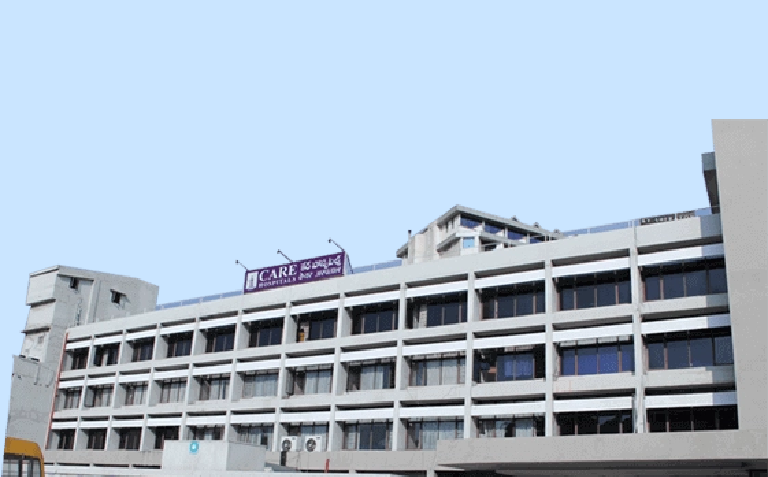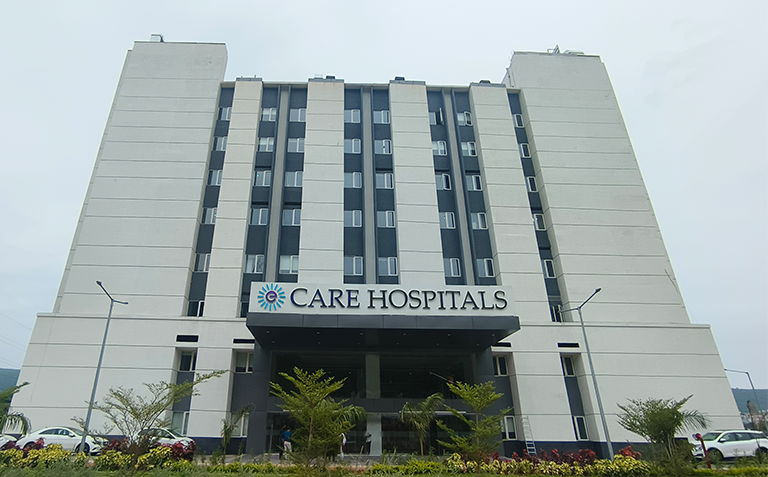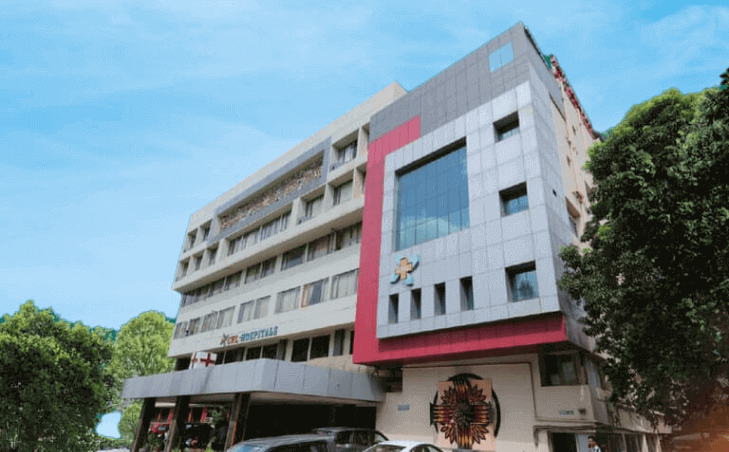-
Doctors
-
Specialities & Treatments
Centre of Excellence
Specialties
Treatments and Procedures
Hospitals & Directions HyderabadCARE Hospitals, Banjara Hills CARE Outpatient Centre, Banjara Hills CARE Hospitals, HITEC City CARE Hospitals, Nampally Gurunanak CARE Hospitals, Musheerabad CARE Hospitals Outpatient Centre, HITEC City CARE Hospitals, Malakpet
HyderabadCARE Hospitals, Banjara Hills CARE Outpatient Centre, Banjara Hills CARE Hospitals, HITEC City CARE Hospitals, Nampally Gurunanak CARE Hospitals, Musheerabad CARE Hospitals Outpatient Centre, HITEC City CARE Hospitals, Malakpet Raipur
Raipur
 Bhubaneswar
Bhubaneswar Visakhapatnam
Visakhapatnam
 Nagpur
Nagpur
 Indore
Indore
 Chh. Sambhajinagar
Chh. SambhajinagarClinics & Medical Centers
Book an AppointmentContact Us
Online Lab Reports
Book an Appointment
Consult Super-Specialist Doctors at CARE Hospitals

Urology
Urology
Best Urology Hospital in Hyderabad
- Expert Urology Doctors and Robotic Specialists
- Precision Treatments & Targeted Programs for Stone Disease and Prostate Enlargement
- 24/7 Urological Emergency & Acute Renal Colic Management Unit
- Advanced Endoscopic Lithotripsy: RIRS, PCNL, and Laser Ablation for Kidney Stones
- Dedicated Men's Health, Female Urology, and Reconstructive Surgery Services
- Robotic Uro-Surgeries & Minimally Invasive Techniques
- Pediatric Urology & Congenital Urinary Tract Disorder Treatments
- Comprehensive Urodynamics, Voiding Dysfunction Testing, and Diagnostics
- Specialized Prostate, Kidney, Bladder, and Male Infertility Treatment Programs
- Comprehensive Pain Management, Pelvic Floor Therapy, and Uro-Rehabilitation
The Urology Department of CARE Hospitals provides a wide range of basic and specialised urological investigations and treatments for patients of all ages and various other medical needs with world-class expertise, making us one of the best urology hospitals in Hyderabad. With a team of globally acclaimed urologists, CARE Hospitals is a pioneer in the field of urology treatments. We offer highly specialised tests for accurate and appropriate diagnosis of a wide range of problems in patients using minimally invasive diagnostic tools.
Urologists and nephrologists at CARE Hospitals provide effective diagnosis using minimally invasive diagnostic procedures such as endoscopy, ultrasound, and urodynamic testing for patients to be provided with a tailored treatment plan suitable to their medical needs.
The interdisciplinary team of urologists and renal specialists in collaboration with Gynaecology and Oncology specialists treat various urological conditions such as urinary incontinence, urinary tract infections, prostate cancer, bladder cancer, bladder prolapse, erectile dysfunction, prostatitis, and interstitial cystitis, among many other common renal and urological ailments.
Being the best urology hospital in Hyderabad, we offer a wide range of treatment options, which include microscopic surgery and penile prosthetic/straightening surgery for males, recurrent urinary tract infections and minimally invasive surgery for stress incontinence for females, along with neuro-urological treatments and reconstructive urology surgical treatments, including laparoscopic pyeloplasty, kidney transplantation, and prostate diseases. We also offer comprehensive care for treatments of kidney cancer, prostate cancer, testis cancer and penile cancer. This makes CARE Hospitals the most trusted healthcare provider for renal and urological ailments in India.
Why You Should Choose CARE Hospitals for Urology Services
One should select CARE Hospitals for its comprehensive and modern urological treatment. CARE is known as one of the top urology hospitals in Hyderabad for its expertise on kidney, bladder, prostate, and male reproductive health. Here are some of the best things about them:
- Expert Urology Team: A team of expert urologists, uro-oncologists, and andrologists who are well trained and have decades of experience.
- Robotic and Minimally Invasive Surgery: Expert use of laparoscopic, endoscopic, and robotic-assisted surgery to minimize discomfort and improve recovery time.
- Advanced Kidney & Urinary Stone Care: Advanced MIS techniques such as laser lithotripsy and mini-PCNL for stone removal.
- Prostate & Bladder Treatment: Advanced surgical treatments for prostate & bladder problems.
- Advanced Diagnostics: We utilize 3D diagnostic imaging as well as high-definition endoscopy to ensure accurate diagnosis and minimally invasive treatment.
- 24/7 Emergency Urology: Round-the-clock surgical and emergency urology services.
- Multidisciplinary Team Approach: Our services work together with nephrologists, oncologists, intensivists, and others to ensure broad spectrum patient-centered care.
- Inclusive Care Programs: For Urological related male infertility, female incontinence, and pediatric urology.
- Personalized Surgery Plan: Customizable surgical treatment plans that include pre-surgical consultations and individualized rehabilitation and recovery.
- Surgical Excellence: High rates of patient satisfaction, along with success in performing complex surgical procedures in urology.
Urology Conditions Treated at CARE Hospitals
CARE Hospitals offers expert diagnosis and management for a full spectrum of urological diseases—addressing kidney, bladder, prostate, urethral, male reproductive health concerns, and female urological concerns with precision and compassion.
- Kidney & Ureteric Disorders
- Kidney Stones (Urolithiasis): These are hard, crystal-like deposits that grow in the kidneys. and leads to the blockage of urine; these build-ups cause discomfort in the flank and blood in the urine.
- Hydronephrosis: The kidney gets enlarged and swollen due to accumulating urine as a result of either obstruction or reflux.
- Renal Cell Carcinoma (RCC): A cancerous tumour that begins in kidney tissue, often presents with blood in the urine or a tumor in the flank.
- Polycystic Kidney Disease (PKD): An inherited disease that causes multiple cysts to develop and leads to progressive loss of kidney function.
- Ureteric Stricture: A narrowing or scarring of the ureter that inhibits the drainage of urine into the bladder.
- Ureteric Stones: These are the stones lodged in the ureter, resulting in severe colicky pain and blockage.
- Upper Tract Urothelial Carcinoma: A cancer that begins in the urothelium of the renal pelvis or ureter.
- Congenital PUJ (Pelviureteric Junction) Obstruction: A defect at birth that blocks the connection between the kidney and the ureter.
- Bladder Problems
- Urinary Tract Infection (UTI): A bacterial infection of the bladder or urinary tract that causes burning, urgency, and frequent urination.
- Cystitis: This occurs when the lining of the bladder is inflamed, which is usually caused by an infection or irritation.
- Bladder Stones: Bladder stones are the mineral deposits that form in the bladder and may cause discomfort, infection, or blockage.
- Bladder Cancer: A malignant tumor that is seen in the lining of the bladder and often shows up as painless hematuria.
- Overactive Bladder (OAB): Overactive bladder is a condition characterized by frequent desires to urinate, urgency, and nocturia.
- Urinary Incontinence: The inability to control the urine leakage because of weak pelvic muscles or problems with the sphincter.
- Neurogenic Bladder: This is the condition seen with loss of bladder control due to damage in the bladder nervous system.
- Interstitial Cystitis/Painful Bladder Syndrome: This is the condition associated with long-term discomfort and pressure in the bladder without any infection.
- Bladder Diverticulum: This is a bulge in the bladder wall that may hold urine or cause infections.
- Prostate Disorders
- Benign Prostatic Hyperplasia (BPH): This is a condition with prostate enlargement that is not malignant and makes urination harder and more frequent.
- Prostate cancer: It is a cancerous growth that grows in the prostate gland and may spread to bones or lymph nodes if not treated.
- Prostatitis: This is an infection or inflammation of the prostate gland resulting in fever, pelvic discomfort, and urine symptoms.
- Prostate Abscess: A localized accumulation of pus in the prostate resulting from bacterial infection.
- Pediatric Urology
- Undescended Testis (Cryptorchidism): One or both testicles do not drop into the scrotum before birth.
- Hydrocele: A condition in which fluid builds up around the testis, causing the scrotum to expand without discomfort.
- Vesicoureteral Reflux (VUR): When urine flows backwards from the bladder to the kidneys, it raises the risk of infection.
- Hypospadias: This is a birth defect that causes the urethral opening to be on the bottom of the penis.
- Posterior Urethral Valves (PUV): Obstructive membranes in the male urethra causing urinary blockage.
- Epispadias: A birth defect that causes the urethral opening to be on the top of the penis.
- Phimosis and Paraphimosis: A tight foreskin that can't be pulled back or is stuck behind the glans.
- Enuresis (bedwetting): This is when a kid urinates while they sleep and they are older than the age at which they should be able to regulate their bladder.
- Men's Sexual and Reproductive Health
- Erectile Dysfunction (ED): A long-term inability to get or maintain an erection that is good enough for sexual engagement.
- Male Infertility: A decrease in sperm production, quality, or blockage that makes it hard to become pregnant.
- Varicocele: Swollen and enlarged veins in the scrotum that may cause pain and make it harder to become pregnant.
- Peyronie's Disease: The growth of fibrous scar tissue within the penis that makes it bend and hurt.
- Testicular Tumors: These are abnormal growths that happen in the testis and usually feel like lumps that don't hurt.
- Testicular Torsion: This needs a surgical emergency that happens when the spermatic cord twists and cuts off blood flow to the testicle.
- Epididymo-orchitis: This occurs when the epididymis and testis are inflamed, which is generally caused by an infection.
- Anejaculation and Retrograde Ejaculation: Ejaculatory dysfunctions caused by nerve or anatomical abnormalities.
- Female Urology (Urogynecology)
- Stress Urinary Incontinence (SUI): When you cough, sneeze, or do anything hard, your pelvic muscles are too weak to hold in your pee.
- Urge Urinary Incontinence: A sudden and urgent need to urinate that causes an accident.
- Mixed Urinary incontinence: This is when you have both stress and urge incontinence symptoms.
- Pelvic Organ Prolapse: This occurs when the vagina becomes encumbered with the bladder, uterus, and/or rectum and is a very painful experience for a woman due to the pressure from these organs pressing down on it.
- Urethral Diverticulum: A diverticulum is a small divot (or indent) on the urethra that has become infected; this can be very uncomfortable to deal with, as it often produces an excessive amount of dribbling when urinating.
- Recurrent Bladder Infections (or UTIs) in Women: UTIs and bladder infections are extremely common in women owing to structural or hormonal influences.
- Fistulas (Vesicovaginal / Urethrovaginal): This condition involves an abnormal link between the urinary and genital systems, resulting in persistent leakage.
- Interstitial Cystitis: This condition is characterized by chronic pelvic pain and an urgent need to urinate.
- Urethral Stricture in Females: The urethra narrows, making it difficult for urine to flow and fully empty.
- Urethral & Pelvic Floor Disorders
- Urethral Stricture Disease: Scarring of the urethra that makes it hard to urinate because the tube is too small.
- Urethral Trauma: Damage to the urethra caused by accidents or medical tools.
- Pelvic Floor Dysfunction: Weakness or lack of coordination in the pelvic muscles that causes discomfort, constipation, or urine problems.
- Urethral Caruncle: A small, non-cancerous growth that forms at the entrance of the urethra in women who have stopped having periods.
- Urethral Syndrome: Condition with persistent urine pain without evident infection or blockage.
- Other Unique Conditions
- Adrenal Tumors (Pheochromocytoma, Adenoma): Abnormal growths that produce hormones and impact the adrenal gland.
- Renal Vascular Hypertension: Condition associated with high blood pressure due to narrowing of renal arteries.
- Genitourinary Trauma: Injuries to the kidneys, bladder, urethra, or genitals that happen in sports or by accident.
- Urogenital Tuberculosis: A TB infection that affects the kidneys, bladder, or reproductive organs.
- Hematuria (Visible or Microscopic): The presence of blood in the urine caused by an infection, stones, or cancer.
- Chronic Kidney Obstruction: A long-term obstruction of the urinary tract that causes damage to the kidneys over time.
Urological Procedures & Surgical Treatments at CARE Hospitals
CARE Hospitals performs modern endoscopic, laparoscopic, and robotic urological operations with care and accuracy. This means less discomfort, a faster recovery, and great results. CARE Hospitals is the best urology hospital in Hyderabad. We provide a lot of different treatments, including as
- Kidney & Ureteric Procedures
- Ureteroscopy (URS): A narrow scope is used to find and remove ureteric or kidney stones from the urine system using lasers.
- Percutaneous Nephrolithotomy (PCNL): A tiny incision in the back is used to do keyhole surgery to remove big or complicated kidney stones.
- Mini/Ultra-Mini PCNL: Modified PCNL techniques using smaller tracts and instruments for minimal tissue damage and faster recovery.
- Retrograde Intrarenal Surgery (RIRS): A flexible ureteroscopic method for getting at and breaking up kidney stones using the body's natural urine pathways.
- Extracorporeal Shock Wave Lithotripsy (ESWL): This is a non-invasive way to break up kidney stones into pieces that may be passed. It employs concentrated sound waves.
- Pyeloplasty: Pyeloplasty is a surgery that fixes the ureteropelvic junction so that urine may flow normally again.
- Ureteric Reimplantation: This is the process of reattaching the ureter to the bladder at a different location to fix reflux or obstruction.
- Ureteric Stricture Repair: An endoscopic incision, dilatation, or open reconstruction to open up the ureter.
- Partial or Radical Nephrectomy: This is the removal of part or all of a kidney to treat tumors. It may be done using laparoscopic or robotic procedures.
- Nephroureterectomy: This is the surgical removal of the kidney and ureter for malignancies of the upper urinary system.
- Cyst Decortication: Laparoscopic excision or unroofing of symptomatic renal cysts to reduce pressure or pain.
- Nephrostomy/Ureteral Stenting: Putting in tubes or stents to temporarily change the flow of urine and get around blockages.
- Bladder Procedures
- Transurethral Resection of Bladder Tumor (TURBT): An electric loop is used to remove bladder tumors via the urethra.
- Cystolitholapaxy: Using a cystoscope, bladder stones are broken up and removed via the endoscope.
- Cystectomy (Partial / Radical): Surgical excision of a portion or the whole of the bladder in instances of invasive carcinoma.
- Neobladder/Ileal Conduit Reconstruction: Making a new place for urine to collect after removing the bladder by using tissue from the intestines.
- Bladder Diverticulectomy: This is the surgical removal of bladder outpouchings that hold urine or cause infections.
- Bladder Augmentation (Cystoplasty): Enlargement of the bladder using bowel segments to increase capacity.
- Bladder Neck Incision/Reconstruction: A procedure that uses an endoscope or surgery to enlarge the bladder exit to remove blockage.
- Prostate Procedures
- Transurethral Resection of Prostate (TURP): A common kind of endoscopic surgery that uses the urethra to remove prostate tissue that is blocking the flow of urine.
- Holmium Laser Enucleation of Prostate (HoLEP): A laser-based way to remove an enlarged prostate that causes relatively little bleeding and a speedy recovery.
- Thulium Laser Vaporization: A precise laser surgery that turns prostate tissue into vapor to help urine flow better.
- Open/Robotic Simple Prostatectomy: The surgical removal of big, non-cancerous prostate tissue by an open or robotic method.
- Radical Prostatectomy: This is the complete removal of the prostate gland due to malignancy. It may be done laparoscopically or robotically.
- Prostate Biopsy (TRUS / MRI Fusion): A way to take samples of prostate tissue using images to check for malignancy.
- Prostate Abscess Drainage: The process of draining pus from the prostate using an endoscope or other guided method.
- Male Urology & Genital Procedures
- Varicocelectomy: Microsurgical or laparoscopic closure of swollen scrotal veins to promote testicular function.
- Orchidopexy: The surgical relocation of a testis that has not descended into the scrotum to stop infertility or cancer.
- Orchiectomy: This is the surgical removal of one or both testicles due to malignancy, trauma, or hormonal control.
- Testicular Biopsy: A small piece of tissue taken from the testis to check for fertility or to make a diagnosis.
- Epididymal Cyst Excision: Taking out noncancerous cysts from the epididymis that are causing pain or discomfort.
- Vasectomy or Vasovasostomy: This is a surgery that blocks or reconnects the vas deferens to make a person sterile or restore their fertility.
- Penile Implantation (Prosthesis Implantation): Putting a mechanical implant (device) within the penis to help it function again.
- Penile Plication/Grafting: A surgical procedure to fix the curvature of the penis that is caused by Peyronie's disease.
- Circumcision: A surgical procedure that removes the foreskin to alleviate phimosis or infections that keep coming back.
- Scrotal Exploration: Surgical examination of acute scrotal discomfort, torsion, or damage.
- Urology for Women (Urogynecology) Procedures
- Mid-Urethral Sling Procedure: Putting a supporting mesh in place with as little damage as possible to address stress urine incontinence.
- Burch Colposuspension: A surgical procedure that lifts the bladder neck to help pelvic tissues stay in place and restore continence.
- Pelvic Organ Prolapse Repair: Putting pelvic tissues back in their proper place using vaginal, laparoscopic, or robotic surgery.
- Vesicovaginal/Urethrovaginal Fistula Repair: Closing up aberrant holes in the bladder or urethra that lead to the vagina with surgery.
- Urethral Diverticulectomy: This is the removal of a urethral sac-like outpouching that causes discomfort or infection.
- Female Urethral Dilation/Urethroplasty: Making the urethra bigger or rebuilding it to get rid of blockages.
- Bladder Neck Suspension: Lifting and stabilizing the base of the bladder to help in urinary control.
- Pediatric Urology Procedures
- Orchiopexy: A surgical procedure to fix undescended testes so that they are in the right place and function normally.
- Hypospadias/Epispadias Repair: Surgery on the urethra to fix problems with the opening of the urinary tract that were present at birth.
- Posterior Urethral Valve Ablation: Endoscopic removal of membranes that are blocking the urethra in male babies.
- Ureteric Reimplantation: This is the process of moving the ureter into the bladder wall to fix vesicoureteral reflux.
- Pediatric Pyeloplasty: This is a minimally invasive way to fix a clogged kidney drainage system at the ureteropelvic junction.
- Circumcision/Preputioplasty: For medical or anatomical reasons, the foreskin is taken off or reshaped.
- Hydrocelectomy: A surgery that drains and removes the fluid surrounding the testis that causes hydrocele.
- Repair of Bladder Exstrophy: A complicated surgery to fix the structure of the bladder and abdominal wall.
- Urethra and Pelvic Floor Procedures
- Visual Internal Urethrotomy (VIU): An endoscopic cut that opens a constricted part of the urethra and lets urine flow again.
- Urethroplasty: An open surgery that fixes the urethra when it has lengthy or repeated strictures.
- Pelvic Floor Reconstruction: Making pelvic muscles that are responsible for holding the bladder and rectum stronger, and also repairing them without damage. Pelvic Floor Reconstruction: Making pelvic muscles that are responsible for holding the bladder and rectum stronger, also to repair them without damage.
- Artificial Urinary Sphincter Implantation: A procedure that places a mechanical device to control urine in people suffering from severe incontinence.
- Fistula Repair (Urethral/Vesical): Closing of abnormal passages between the urinary and genital systems is done through a surgical procedure.
- High-Grade and Minimally Invasive Technologies
- Laparoscopic Surgeries: Small cuts and cameras are used in such surgical procedures to navigate them. They cause less pain, and the recovery is quicker.
- Robotic-Assisted Surgeries (Da Vinci System): These surgeries are done with a high level of precision and are less invasive compared to the traditional open surgeries for complicated cases related to the kidney, prostate, and pelvis.
- Laser Technologies (Holmium, Thulium, Moses): Advanced energy systems utilized for conducting prostate surgery, stone fragmentation, and stricture treatment.
- Endoscopic (Transurethral) Surgeries: These surgeries are done without any scars and are performed using tiny instruments through the normal urine channel.
- 3D Imaging and Intraoperative Ultrasound: Improves the ability to see and the accuracy of surgery during complicated operations.
- Miniaturized PCNL/RIRS Systems: This uses very thin scopes and equipment for removing stones without leaving scars.
- Reconstructive and Functional Urology Techniques: These use robots or laparoscopes to fix the natural structure of the urine and reproductive systems.
Our Expert Team of Urologists
Our experienced team of urologists brings together advanced skills and compassionate care to treat every individual and ensure that they receive the appropriate treatment within the time frame. As part of the best urology hospital in Hyderabad, we provide you modern technology with deep clinical expertise to treat complex kidney and urinary conditions.
Whether you’re searching for an experienced & trusted urologist hospital near me, looking for a dedicated kidney specialist hospital, or hoping to consult the best urologist in Hyderabad, our team is ready to give you the personalised, safe, and effective care.
Treatments and Procedures
-
Female Urology
Urology focuses on conditions related to the urinary tract system, including the kidneys, adrenal glands, ureters, urinary bladder, urethra, and the male reproductive organs that include the penis, te...
Read More
-
Kidney Stone Removal
Kidney stones are mineral and acid salt deposits that bind together in concentrated urine. They can be uncomfortable when moving through the urinary tract, but they seldom cause permanent harm. Sym...
Read More
-
Male Infertility
Male infertility can be caused by poor sperm production, defective sperm function, or sperm delivery obstructions. It can also occur because of illnesses, injuries, persistent health issues, lifestyle...
Read More
-
Penile Implants & Transplant
Transplants have become a common surgical procedure in which an organ like kidney, lung, liver, etc is taken from a donor and placed in the body of the patient to replace a damaged or missing organ. O...
Read More
-
UTI
A urinary tract infection (UTI) is an illness that can affect any portion of your urinary system, including your kidneys, ureters, bladder, and urethra. Women are more likely than males to have a UTI....
Read More
Our Doctors
-

Dr. Saurabh Julka
MBBS, MS, DNB (Urology)
Urology
View More -
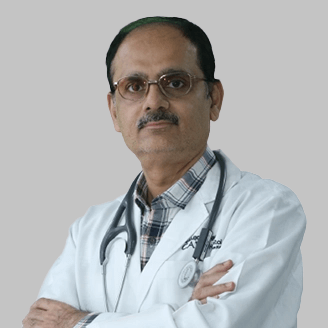
Dr. Ajay Parashar
MS, MCh (Urology)
Urology, Renal Transplant
View More -

Dr. Arun Chinchole
MS (General Surgery), DNB (General Surgery), DNB (Urology), MNAMS
Nephrology, Urology
View More -

Dr. Arun Rathi
MBBS, MS (General Surgery), MCh (Genitourinary Surgery)
Urology
View More -
Dr. B V Rama Raju
MBBS, MS, MCh
Urology
View More -

Dr. G Madhusudhan Reddy
MS, M Ch (Urology & Renal Transplant)
Urology, Renal Transplant
View More -

Dr. Gillella Narasimha Reddy
MBBS, MS, MCh
Urology
View More -

Dr. Harsh Jain
MBBS, MS, MCh ( Urology)
Urology
View More -

Dr. Jyoti Mohan Tosh
MBBS, MS (General Surgery), Mch (Urology)
Urology, Renal Transplant
View More -

Dr. Muqqurab Ali
MS, DrNB Urology
Urology
View More -

Dr. Murali Mohan Bheri
MBBS, MS(General Surgery), M.Ch (Genito Urinary Surgery)
Urology
View More -
Dr. P Randheer Kumar
MBBS, MS , MCH
Urology
View More -

Dr. P Vamsi Krishna
MBBS, MS, MCh
Urology, Renal Transplant
View More -

Dr. Rama Krishna Kassa
MBBS, MS, DNB, MCh
Urology
View More -

Dr. Sumanta Kumar Mishra
MBBS, M.S (General Surgery), M.CH (Urology, CMC, Vellore), DNB (Genito-Urinary Surgery)
Urology, Renal Transplant
View More -

Dr. Sushanth Kulkarni
MBBS, MS, Mch
Urology, Renal Transplant
View More -

Dr. Suvajit Pradhan
MBBS, MS, DNB (Urology)
Urology
View More -

Dr. SV Chaitanya
MBBS, MS, MCh (Urology)
Urology
View More -

Dr. Upendra Kumar N
MBBS, MS (General Surgery), Mch (Urology)
Urology
View More -

Dr. Vaibhav Vinkare
MBBS, MS (General Surgery), MCh (Urology)
Urology
View More -

Dr. Vipin Sharma
M.S. (General Surgery), MCh Urology, DrNB Urology, Fellowship in Reconstructive Urology
Urology
View More
Our Locations
CARE Hospitals, a part of the Evercare Group, brings international quality healthcare to serve patients across the world. With 16 healthcare facilities serving 7 cities across 6 states in India, we are counted among the top 5 pan-Indian hospital chains.
-
CARE Hospitals, Banjara Hills, Hyderabad
Road No.1, Banjara Hills, Hyderabad, Telangana - 500034
-
CARE Hospitals Outpatient Centre, Banjara Hills, Hyderabad
BabuKhan Chambers, Road No.10, Banjara Hills, Hyderabad, Telangana - 500034
-
CARE Hospitals, HITEC City, Hyderabad
Old Mumbai Highway, Near Cyberabad Police Commissionerate, Jayabheri Pine Valley, HITEC City, Hyderabad, Telangana - 500032
-
CARE Hospitals Outpatient Centre, HITEC City, Hyderabad
Jayabheri Pine Valley, Old Mumbai Highway, Near Cyberabad Police Commissionerate HITEC City, Hyderabad, Telangana - 500032
-
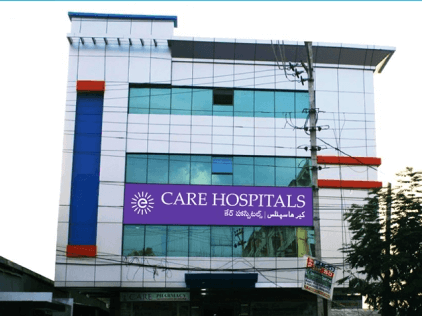
Gurunanak CARE Hospitals, Musheerabad, Hyderabad
1-4-908/7/1, Near Raja Deluxe Theatre, Bakaram, Musheerabad, Hyderabad, Telangana – 500020
-
CARE Hospitals, Nampally, Hyderabad
Exhibition Grounds Road, Nampally, Hyderabad, Telangana – 500001
-
CARE Hospitals, Malakpet, Hyderabad
16-6-104 to 109, Metro Pillar Number 1393, Old Kamal Theater Complex Chaderghat Road, Opp Niagara Hotel, Chaderghat, Hyderabad, Telangana - 500024
-
Ramkrishna CARE Hospitals, Raipur
Aurobindo Enclave, Pachpedhi Naka, Dhamtari Road, Raipur, Chhattisgarh - 492001
-
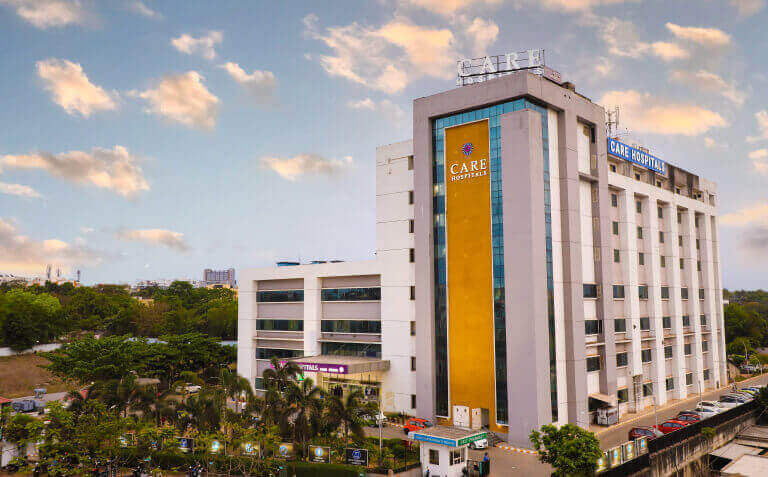
CARE Hospitals, Bhubaneswar
Unit No.42, Plot No. 324, Prachi Enclave Rd, Rail Vihar, Chandrasekharpur, Bhubaneswar, Odisha - 751016
-
Ganga CARE Hospital Limited, Nagpur
3 Farmland, Panchsheel Square, Wardha Road, Nagpur, Maharashtra – 440012
-
United CIIGMA Hospitals (A unit of CARE Hospitals), Chh. Sambhajinagar
Plot no 6, 7, Darga Rd, Shahnoorwadi, Chh. Sambhajinagar, Maharashtra 431005
Doctor Blogs
-
Leukocytes in Urine: Symptoms, Causes, and Treatment
Like superheroes in our body, Leukocytes (also known as white blood cells (WBC)) work tirelessly to keep us sa...
11 February
Read More
-

Male Yeast Infection: Symptoms, Causes, Treatment and Home Remedies
People often link yeast infections to women, but men deal with this problem too. Men's yeast infections, w...
11 February
Read More
-

Cloudy Urine: Causes, Symptoms and Treatment
Have you ever seen your urine look turbid or milky? While it might worry you cloudy pee isn't rare and can...
11 February
Read More
-

10 Home Remedies For Frequent Urination
Frequent urination is a typical issue that can occur at any age. This is called when you feel the need to urin...
11 February
Read More
-

Pus Cells in Urine (Pyuria): Symptoms, Causes, Normal Range & Treatment
Urine is one of the key indicators of health concerns, and the composition of urine reveals much about what is...
11 February
Read More
-

Understanding Urinary Tract Infections in Men: Causes, Symptoms, and Prevention
Urinary tract infections, or UTIs, are among the most common medical concerns affecting individuals of all age...
11 February
Read More
-

Foamy Urine: Symptoms, Causes, Treatment and Home Remedies
Have you ever noticed foam or froth in your urine? While it may seem harmless, foamy urine can be an indicativ...
11 February
Read More
-
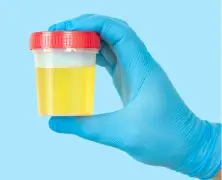
Epithelial Cells in Urine: Types, Causes, Symptoms and Treatment
When you think about urine, you might assume it consists solely of waste products from your body. However, the...
11 February
Read More
-

Urinary Retention: Symptoms, Causes, Diagnosis and Treatment
Urinary retention refers to the inability to fully empty the bladder while urinating. It is a urological disor...
11 February
Read More
-

How to Increase Sperm Count: 12 Ways To Do
Embarking on the journey to parenthood is an exciting chapter in life, and understanding the factors that infl...
11 February
Read More
-
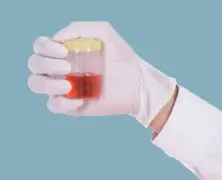
Blood in Urine (Hematuria): Symptoms, Causes, Diagnosis, Prevention and Treatment
Blood in urine, medically known as hematuria, refers to the presence of blood in the urine. It occurs when the...
11 February
Read More
-
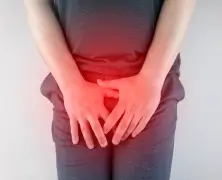
Overactive Bladder: Symptoms, Cures and Natural Treatments
Overactive bladder, also known as OAB, is a condition related to the urinary system, affecting mostly people a...
11 February
Read More
-

How to Lower Uric Acid Levels Naturally?
Uric acid is a natural waste product of the body's digestive system that contains purines. Purines are cer...
11 February
Read More
-

What Foods Cause Kidney Stones?
Kidneys are vital organs in the human body and when damaged could cause severe consequences. Kidneys filter th...
11 February
Read More
-
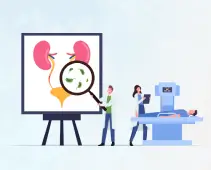
Causes of Burning Sensation During Urination
Dysuria (painful urination) is a broad term that refers to any type of urinary discomfort. This pain can be ca...
11 February
Read More
-

Urinary Tract Infection (UTI ) in Women: All You Need to Know
UTI stands for urinary tract infection and refers to an infection in any part of the urinary system including ...
11 February
Read More
-
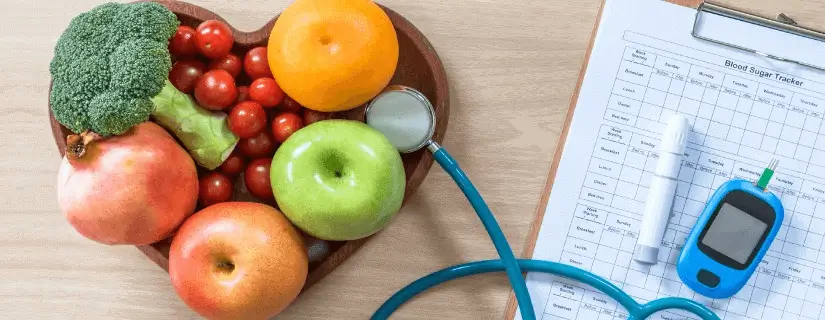
Kidney Friendly Diet to Ensure Healthy Kidneys
Kidneys perform the most important job of cleansing your blood from excess fluids and waste products. About 12...
11 February
Read More
-

3 Signs & Symptoms of Kidney Stones You Must Never Ignore
Kidney stone refer to hard deposits made of minerals and salts that form inside your kidneys. The reasons for ...
11 February
Read More
-

Kidney Health: Conditions That Can Affect Your Kidneys
Kidney diseases create a major impact on the body’s ability to filter out waste from your blood and main...
11 February
Read More
-
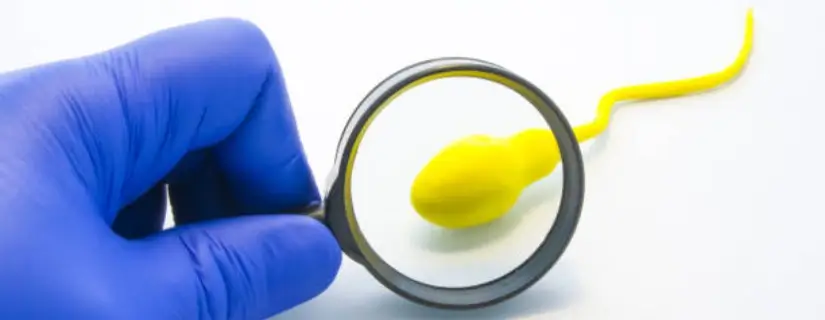
Male Infertility - Causes and Treatment Options
Male infertility refers to any health issue that lowers the chances of a man causing pregnancy in his female p...
11 February
Read More
-

Diet for Kidney Stones: What to Eat and What to Avoid
Kidney stones are hardened deposits of minerals and/or salts that form inside the kidneys. They can be classif...
11 February
Read More
-

Get Rid of Kidney Stones with these Treatments
Kidney stones are hard deposits of minerals and salts formed inside the kidneys. They can cause severe pain an...
11 February
Read More
Doctor Videos
-
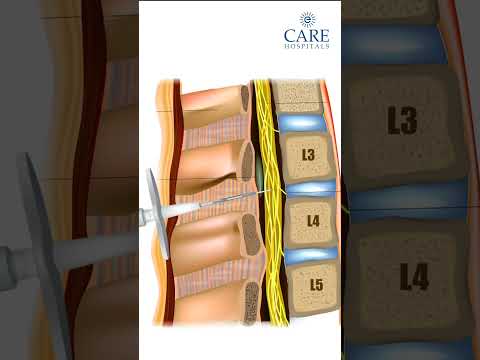

Who is RISM ideal for?
-
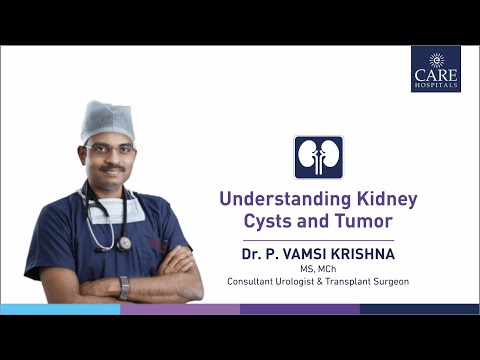

Understanding Kidney Cysts and Tumor
-
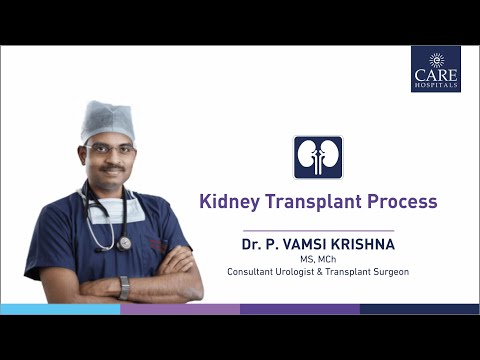

Kidney Transplant Process
-
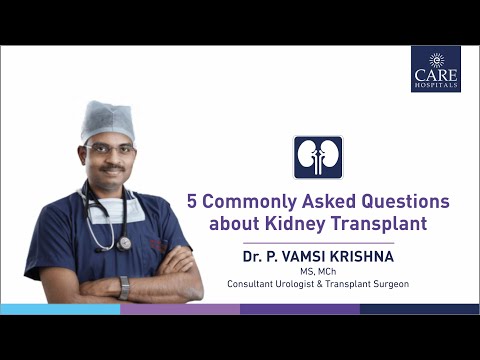

5 Commonly Asked Questions about Kidney Transplan
-
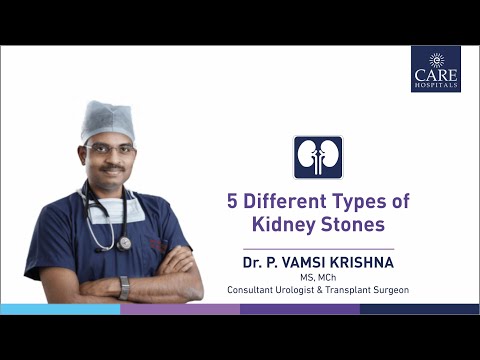

5 Different Types of Kidney Stones
-
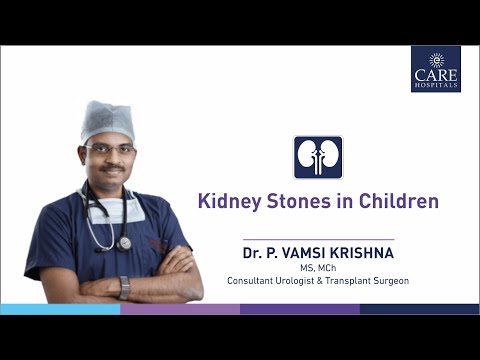

Kidney Stones in Children
-


How to choose a right Doctor and Hospital for Kidney Stone Treatment |
-
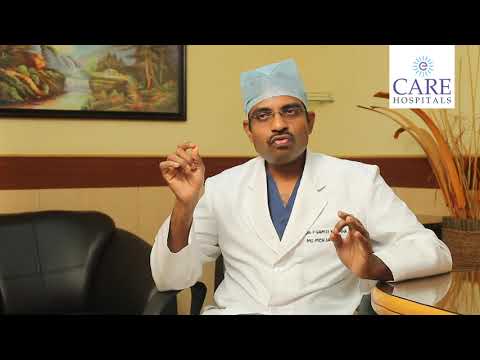

Know about the complications of Kidney Stones | Urology | Kidney | Best Urology Care | CARE Hospital
Frequently Asked Questions
Couldn’t find what you were looking for?
Need any help? Get a Call Back.

Still Have a Question?




